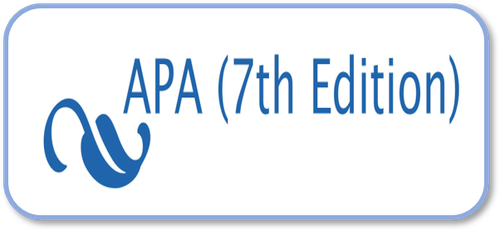The Role Of Organisational Commitment In Mediating Work-Life Balance On Employee Performance
DOI:
https://doi.org/10.24912/jm.v28i2.1885Abstract
The current study proposed to examine the mediating role of organisational commitment dimensions in the relationship between work-life balance and employee performance at BPR Denpasar City, with assets exceeding 100 billion. With a sample of 249 employees, the research reveals a notable gap in prior studies regarding utilising organisational commitment dimensions as mediators. Questionnaires were used to gather data, which SEM-PLS analysis techniques were then used to process. The findings show that Work-life balance has a positive and significant impact on employee performance, affective commitment, continuance commitment, and normative commitment. Affective, continuance and normative commitment significantly influence employee performance. Affective commitment, continuance commitment, and normative commitment mediate the results of work-life balance and employee performance.
References
Afandi, P. (2018). Manajemen Sumber Daya Manusia (Teori, Konsep Dan Indikator). Riau: Zanafa Publishing, 3.
Al-Hawary, S. I. S., Al-mzary, M. M., Mohammad, A., Shamaileh, N. A., Mohammad, A. A. S., Alshurideh, M. T., Al Kurdi, B., Al-hawajreh, K. M., & Mohammad, A. I. (2023). The Impact Of Work-Life Balance On Organizational Commitment. Springer International Publishing. https://doi.org/10.1007/978-3-031-12382-5_65.
Ardiansyah, C. A., & Surjanti, J. (2020). Pengaruh Work Life Balance Terhadap Kinerja Karyawan Melalui Komitmen Organisasi Pada Karyawan PT. Bhinneka Life Indonesia Cabang Surabaya. Jurnal Ilmu Manajemen, 8(4), 1211-1221. https://doi.org/10.26740/jim.v8n4.p1211-1221.
Busro, M. (2020). Teori-Teori Manajemen Sumber Daya Manusia: Vol. (Edisi Revisi). Prenamedia Grup.
Campo, A. M. D. V., Avolio, B., & Carlier, S. I. (2021). The Relationship Between Telework, Job Performance, Work-Life Balance And Family Supportive Supervisor Behaviours In The Context Of COVID-19. Global Business Review. https://doi.org/10.1177/09721509211049918.
Cesário, F., & Chambel, J. (2017). Maria. 2017. Linking Organisational Commitment And Work Engagement To Employee Performance. Knowledge and Process Management. https://doi.org/10.1002/kpm.1542.
Chigeda, F., Ndofirepi, T. M., & Steyn, R. (2022). Continuance In Organisational Commitment: The Role Of Emotional Intelligence, Work-Life Balance Support, And Work-Related Stress. Global Business and Organizational Excellence, 42(1), 22–38. https://doi.org/10.1002/joe.22172.
Colquitt, L., & Wesson, O. B. (2018). Improving Performance And Commitment In The Workplace. Florida: McGraw-Hill Irwin, 2.
Desi Kristanti, S. E., & Pangastuti, R. L. (2019). Kiat-Kiat Merangsang Kinerja Karyawan Bagian Produksi. Media Sahabat Cendekia.
Donkor, F., & Zhou, D. (2020). Organisational Commitment Influences The Relationship Between Transactional And Laissez-Faire Leadership Styles And Employee Performance In The Ghanaian Public Service Environment. Journal of Psychology in Africa, 30(1), 30–36. https://doi.org/10.1080/14330237.2020.1712808.
Felicia Foanto, E., Brigitta Tunarso, E., Wijaya Kartika, E., Manajemen Perhotelan, P., & Studi Manajemen, P. (2020). Peran Work Life Balance Terhadap Kinerja Karyawan Melalui Komitmen Afektif Sebagai Variabel Mediasi Pada Karyawan Hotel Berbintang Tiga Di Makassar, Sulawesi Selatan. Jurnal Manajemen Perhotelan, 6(1), 37–45. https://doi.org/10.9744/jmp.6.1.37-45.
Hadian, D., Tinggi, S., & Pasundan, I. E. (2022). Effect Of Employee Engagement And Continuance Commitment On Employee Performance. Jurnal Computech & Bisnis, 16(1), 35–40. https://doi.org/10.56447/jcb.v16i1.47.
Hidajat, T. (2020). Rural Banks Fraud: A Story From Indonesia. Journal of Financial Crime, 27(3), 933–943. https://doi.org/10.1108/JFC-01-2020-0010.
Kasmir. (2018). Manajemen Sumber Daya Manusia Teori Dan Praktik: Jakarta: Rajawali Pers.
Katili, P. B., Wibowo, W., & Akbar, M. (2021). The Effects Of Leadership Styles, Work-Life Balance, And Employee Engagement On Employee Performance.Quantitative Economics and Management Studies, 2(3), 199–205. https://doi.org/10.35877/454ri.qems319.
Kurnia, C., & Widigdo, A. M. N. (2021). Effect Of Work-Life Balance, Job Demand, Job Insecurity On Employee Performance At PT Jaya Lautan Global with Employee Well-Being as a Mediation Variable. European Journal of Business and Management Research, 6(5), 147–152. https://doi.org/10.24018/ejbmr.2021.6.5.948.
Kusumawati, L., & Wiksuana, I. G. B. (2018). Pengaruh Pendapatan Daerah Terhadap Pertumbuhan Ekonomi Di Wilayah Sarbagita Provinsi Bali. E-Jurnal Manajemen Universitas Udayana, 7(5), 2592. https://doi.org/10.24843/EJMUNUD.2018.v07.i05.p12.
Kuswanti, M., Purnamasari, E. D., & DP, M. K. (2021). Pengaruh Komitmen Afektif, Komitmen Berkelanjutan Dan Komitmen Normatif Terhadap Kinerja Karyawan Pabrik Crumb Rubber Factory Di PT. Pinago Utama Sugiwaras. Jurnal Bisnis, Manajemen, Dan Ekonomi, 2(4), 149–165. https://doi.org/10.47747/jbme.v2i4.500.
Olivier, B. (2018). Psychometric Validation Of An Organisational Performance Questionnaire (OPQ) Based On The Burke-Litwin Model. Journal of Psychology in Africa. https://doi.org/10.1080/14330237.2017.1409479.
Onu, C. A., Akinlabi, B. H., & Adegbola, E. A. (2018). Work-Life Balance And Normative Commitments Of Employees In The Selected Deposit Money Banks In Ogun State, Nigeria. European Journal of Business and Innovation Research, 6(5), 1-13. Https://Doi.Org/10.37745/Ejbir.2013.
Qureshi, H., Lambert, E. G., & Frank, J. (2019). When Domains Spill Over: The Relationships Of Work-Family Conflict With Indian Police Affective And Continuance Commitment. International Journal of Offender Therapy and Comparative Criminology, 63(14), 2501–2525. https://doi.org/10.1177/0306624X19846347.
Rahyuda, I. K., Rahyuda, A. G., Rahyuda, H., & Candradewi, M. R. (2018). The Relationship Between The Concept Of Competitive Advantage And The Value Of Catur Paramitha On SMEs In Sarbagita. International Journal of Law and Management, 60(6), 1522–1538. https://doi.org/10.1108/IJLMA-09-2017-0210.
Ramadhan, N., & Marinda, V. S. (2019). Pengaruh Work-Life Balance Dan Kepuasan Kerja Terhadap Komitmen Organisasi Pada Ibu Bekerja Sebagai Guru PAUD Di Kota Cimahi. JMK (Jurnal Manajemen Dan Kewirausahaan), 4(3), 205. https://doi.org/10.32503/jmk.v4i3.592.
Ratnawati, H., Putranti, D., Suparmi, S., & Susilo, A. (2020). Work-Life Balance (WLB) Complexity And Performance Of Employees During Covid-19 Pandemic Keywords. In Arthatama Journal of Business Management and Accounting (Vol. 4, Issue 1). https://doi.org/10.9781/ijimai.2021.08.016.
Riwu S, L., Malelak, M. L., & R.Pellokila, I. (2022). The Influence Of Affective Commitment, Continuous Commitment And Normative Commitment To Employee Performance At Sotis Hotel Kupang During The COVID-19 Pandemic. In Proceedings of the International Conference on Applied Science and Technology on Social Science 2022 (iCAST-SS 2022) (179–185). Atlantis Press SARL. https://doi.org/10.2991/978-2-494069-83-1_33.
Robbins, S. P., & Judge, T. A. (2022). Organisational Behavior: Vol. Update 16th (Global Edition). Pearson Education Limited.
Sa’adah Puspitasari, A., & Darwin, M. (2021). Effect Of Work-Life Balance And Welfare Level On Millennial Employee Performance Through Work Engagement. In International Journal of Science and Society (Vol. 3, Issue 1). https://doi.org/10.54783/ijsoc.v3i1.299.
Shabir, S., & Gani, A. (2020). Impact Of Work-Life Balance On Organisational Commitment Of Women Health-Care Workers: Structural Modelling Approach. International Journal of Organizational Analysis, 28(4), 917–939. https://doi.org/10.1108/IJOA-07-2019-1820.
Sidin, A. I., & Della, R. H. (2021). Perilaku Organisasi (Vol. 1). Literasi Nusantara.
Sugiyono, S. (2018). Metode Penelitian Pendidikan Pendekatan Kualitatif, Kuantitatif Dan R & D. Alfabeta, Bandung.
Syah, L. Y. (2019). Perilaku Organisasi: Konsep dan Implementasi. Penerbit In Media.
Yang, Y., & Islam, D. M. T. (2021). Work-Life Balance And Organisational Commitment: A Study Of Field Level Administration In Bangladesh. International Journal of Public Administration, 44(14), 1286–1296. https://doi.org/10.1080/01900692.2020.1755684.
Zhou, S., Li, X., & Gao, B. (2020). Family/Friends Support, Work-Family Conflict, Organisational Commitment, And Turnover Intention In Young Preschool Teachers In China: A Serial Mediation Model. Children and Youth Services Review. https://doi.org/10.1016/j.childyouth.2020.104997.
Downloads
Published
How to Cite
Issue
Section
License
Copyright (c) 2024 Jurnal Manajemen

This work is licensed under a Creative Commons Attribution-NonCommercial-ShareAlike 4.0 International License.
This journal provides immediate open access to its content on the principle that making research freely available to the public supports a greater global exchange of knowledge.

This work is licensed under a Creative Commons Attribution-NonCommercial-ShareAlike 4.0 International License



















